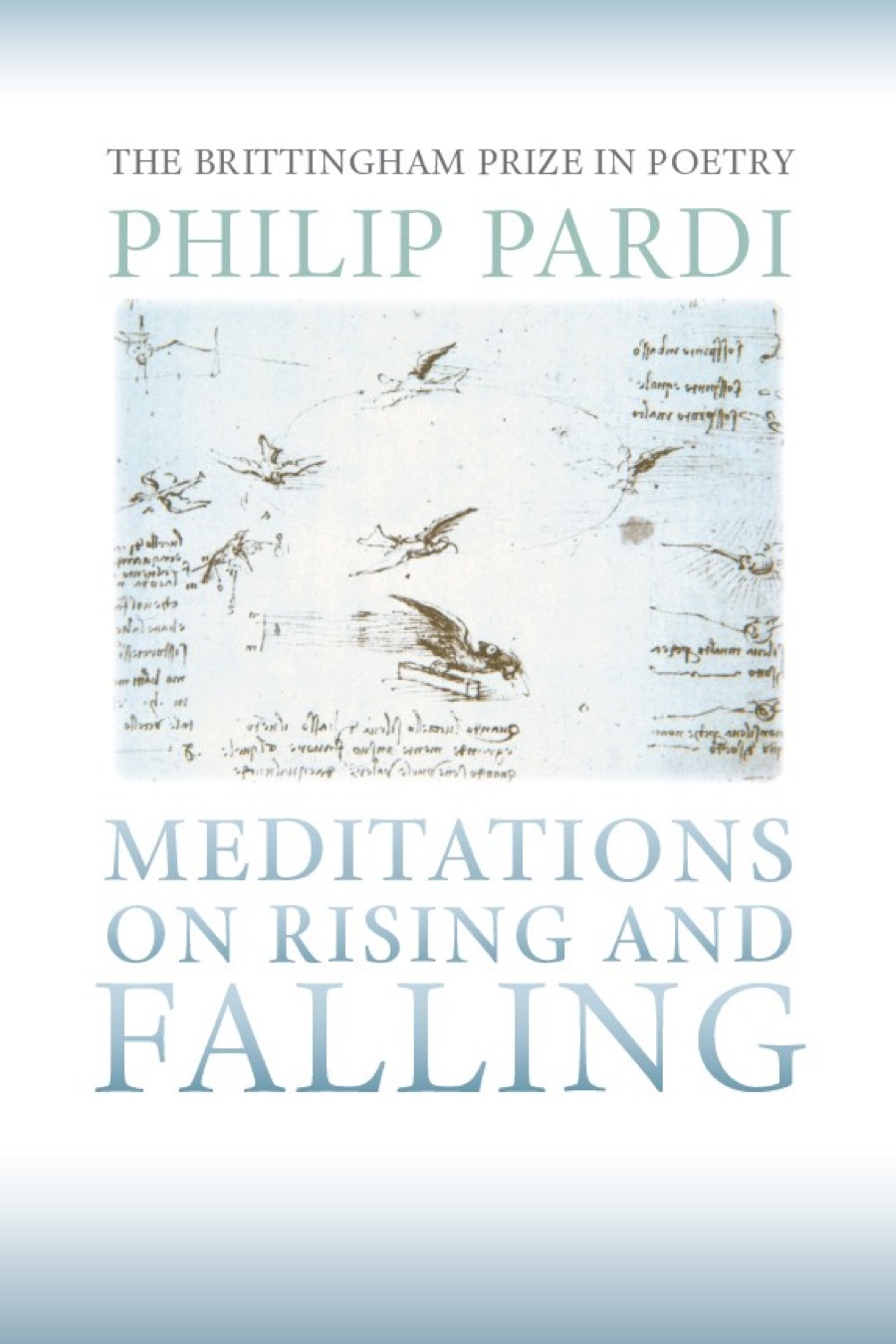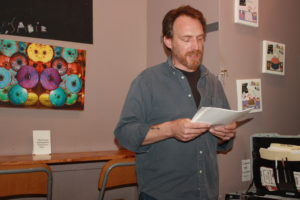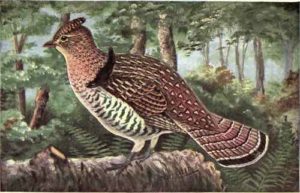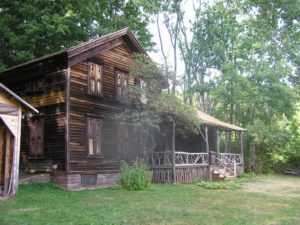When I heard Philip Pardi read this poem aloud, I was taken aback because 1) it was dedicated to me 2) it was so good 3) it nailed me as a bear wannabe. During my five years in a log cabin beside the Panther Kill, I considered the bear my spirit guide, even going so far as to acquire a bear rug that lay neatly folded on the table behind my writing desk chair. Whenever I needed encouragement, I swiveled around to gaze into his tiny eyes and grinning teeth, a friendly presence, my own Ed McMahon. Little did I know at the time that a fellow poet, Philip Pardi, lived over the ridge with his family in a log house beside Muddy Brook. Not until moving to Woodstock did I meet him at poetry events. And little did he know in dedicating this poem to me that I was a bear fancier. Or do people sense that bearness within me without my saying a word?
Counting
For Will Nixon
In the cul between Panther and Garfield mountains
I spot a wounded bear: black, loping
unevenly past beeches and maples into
the spot where they give way so suddenly
to hemlocks. This is the color of what remains,
glimpsed and then gone. Squirrels, taking their cue
from the uncold air, continue their gatherings, paws
adept at what no counting can call into question.
Thy will, thy will, thy will. The world rights
itself on its own terms, and the one thing
we ought to learn from history is we never
learn from history. Then the bear: a swift,
effortless canter, and the warmth of watching
it flee, of seeing, knowing, I was wrong.
Let me recommend Philip’s fine book, Meditations on Rising and Falling, which won the 2008 Brittingham Prize in Poetry from the University of Wisconsin Press.





